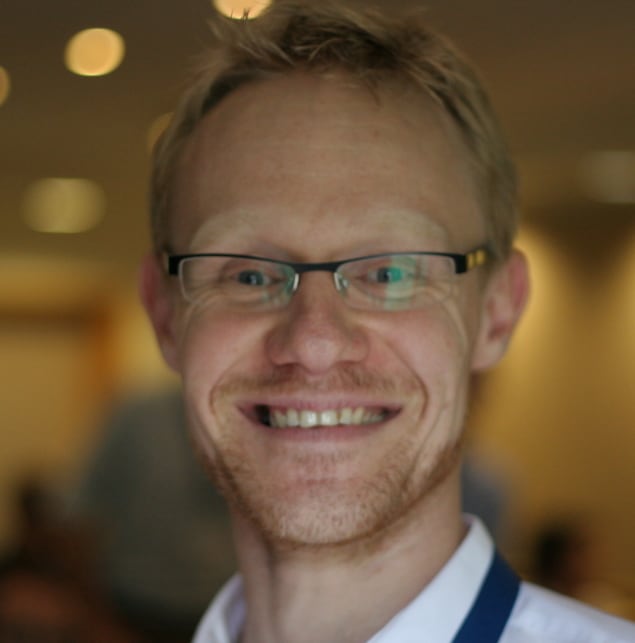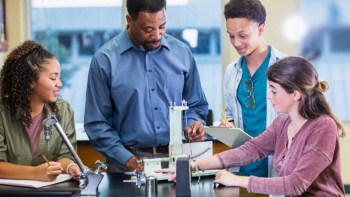
“Variety is the spice of life” is often the phrase trotted out when you are justifying why you can’t settle down in your career. You keep switching courses or jobs because there is an itch for something different, a yearning for new experiences.
If this is you, on the face of it, joining a 40-year old company with excellent staff retention seems like a bad move. But Tessella is not your average company – variety is its lifeblood.
Tessella is an international data science, analytics and AI technology consulting services provider. The company has offices across the UK, US and Europe. And its client roster includes some of the biggest names in science and engineering, from AstraZeneca, GSK and Pfizer to Shell, BP and Equinor, and from Unilever and AkzoNobel to the European Space Agency and JET.
The company has developed a reputation for helping clients from a wide range of sectors to address complex technical challenges by unlocking the power of their data, enabling them to make better-informed business decisions.
That might mean helping pharmaceutical companies to solve computational problems in drug discovery and development, ultimately allowing them to get drugs to market faster. Or it may involve writing algorithms and figuring out the complex mathematics needed to control satellites and radar systems.
“Just recently I’ve been working on a year-long project to develop an internal web app for BP that helps them evaluate commercial and financial opportunities,” says Tessella Consultant David Michel. “Before that it was something completely different – completely different domain, completely different technology.”
The “completely different” project Michel refers to is a four-year overhaul of the systems and software used to control the neutron and muon instruments at the Central Laser Facility (CLF), a world-leading centre for high-energy laser research at the STFC Rutherford Appleton Laboratory near Oxford, UK. It provides both high-power and high-sensitivity lasers for a wide range of scientific applications, from atomic and plasma physics to medical diagnostics, biochemistry and environmental science.
Based at the client’s site every day, Michel helped transition CLF’s operation to a more automated instrumentation control system, using open-source distributed soft real-time control software. This has opened up new capabilities, allowed closer collaboration with other scientific facilities across the world, and enabled CLF users and scientists to conduct more advanced experiments.
A good fit
Michel first heard about Tessella in 2008. Originally from France, he completed a PhD in biophysical chemistry at Sheffield Hallam University in 2006 before moving to Göttingen, Germany, for postdoctoral research at the Max Planck Institute for Biophysical Chemistry.
“At the time of this postdoc, I had started to like developing software – I liked doing this as much as the science,” he recalls. “And then I saw an advert in Physics World for Tessella and wondered: would a company like this employ somebody like me?”

With his application submitted, Michel was immediately impressed by the rigour of the interview process. After a brief telephone interview, he was invited to spend the day at Tessella’s head office for a proper introduction.
“The second interview was thorough, but by the end of the day it felt right to me,” he says. Not only did it give the company enough time to ensure he was a good fit for the team, but it also allowed Michel to assess whether he could see himself working there.
Michel admits that it was a steep learning curve to go from hacking together programs for his theoretical physics and chemistry research, to developing professional software that solves a customer’s problem. Yet Tessella provided the time and resources for him to learn these and other skills. Indeed, the company dedicates 150 hours (1 month) to training every year for every staff member, allowing employees to tailor their own career development based on their aspirations – often leading to recognized professional qualifications.
Moreover, Michel was surrounded by individuals who had been in the same boat. All staff come from a scientific background, and over half have PhDs. “The reason is not that people with PhDs are super-smart compared to others,” he says. “It’s more that a PhD is like the real world in a way, where you have a problem and you have to solve it somehow, as opposed to being fed lectures and exercises.”
Cross-functional and collaborative
Since then, Michel has learned both technical capabilities and leadership skills that have allowed him to take on diverse project roles, including technical lead, project manager and business analyst. “The company has a very flat organizational structure, and we are all cross-functional – a lot of people do a bit of everything,” he says. “We just do whatever is needed for the project.”
For the most challenging customer problems, this can often mean leaning on the wealth of experience within the wider company. “When you don’t necessarily know the answer, it’s quite likely someone, somewhere at Tessella has done something similar,” he says. “We often ask whether anyone has worked with a certain technology or encountered a particular kind of problem before, and there will be dozens of replies.”
As a result, this community of like-minded, intelligent individuals are able to effectively collaborate on hi-tech R&D projects for global companies that are at the forefront of science and technology. But more than this, they create, develop and deliver solutions that make a difference to the world.
“When I talk to friends who are still in academia, sometimes there’s this perception that I’ve sold my soul to the devil, where they think it’s all about money and profit,” says Michel. “Nothing is further from the truth.”
Although the company offers a competitive salary, together with an attractive benefits package and career development opportunities, what Michel cares most about is that Tessella always does the right thing for its customers.
“Coming at this as an ex-scientist, where you really want to have that intellectual freedom and care about the truth, it’s important for me at least that I work for a company that does what’s right – and Tessella does that, to the point where we turn down customers if we’re not the right fit,” he says. “This culture and mindset is something I appreciate very much. It’s not just a sales pitch, it’s real.”



